#essay examples
Explore tagged Tumblr posts
Text

finished reading this great book, 100% recommended to anyone who needs help with their application essay straight-forward approach, easy to read, written in short and digestible format.
#Ivy League#College admissions#Application essays#Essay writing tips#Successful essays#Personal statements#Academic success#Essay examples#Admissions guide#College prep#Ivy League tips#Admissions strategy#High school students#Essay themes#Writing strategies#College essays#Competitive applications#Essay inspiration#Storytelling#Writing process#Admission success#Scholarship essays#Persuasive writing#Essay structure#Unique essays#College application#Admission officers#Academic goals#Creative writing#Essay planning
1 note
·
View note
Link
Helping essays are resources designed to assist students in the essay writing process. These resources can take various forms, including: Essay Examples: Samples of well-written essays on various topics that serve as a reference for students. Writing Guides: Comprehensive guides that provide step-by-step instructions on how to write different types of essays. Editing Services: Professional services that review and improve the quality of a student’s essay. Online Tutorials: Video or text tutorials that cover various aspects of essay writing, from research to final proofreading.
0 notes
Text
StudyZoomer
StudyZoomer: Paper Samples and Topics For College Essay Writing
Website: https://studyzoomer.com/
Address: Sydney, New South Wales, Australia
Contact Email: [email protected]
Business Hours: 24/7
1 note
·
View note
Text
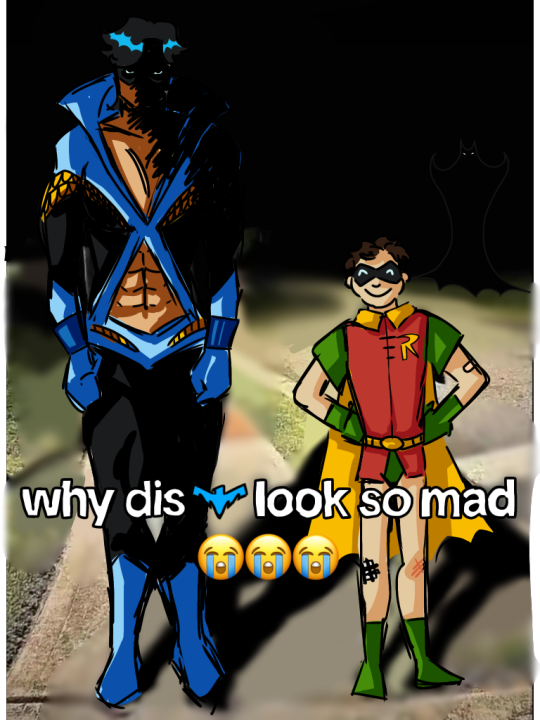
discowing + jaybin ! press for quality
txtless + ref under the cut
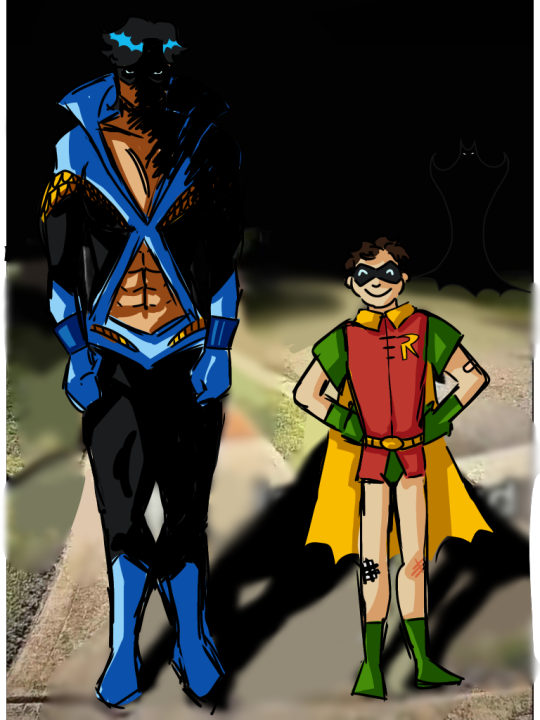
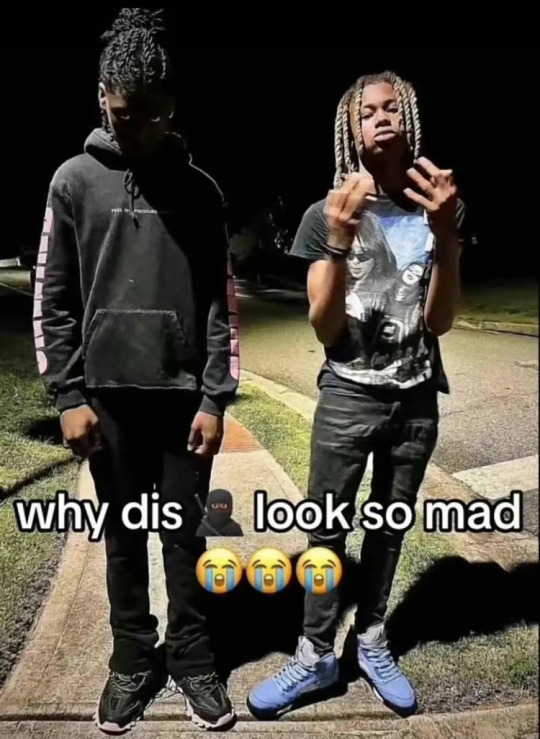
ignore my horrible art please i drew this on ibis paint x with my finger and the soft felt tip pen brush. and my crappy penmanship.
#discowing isnt actually that bad guys i swear in this essay i will-#isn’t the discowing suit mainly dark blue? no#thats actually a commen phenomenon in comics#because comics#especially older ones#tend to use blue as highlights for black#and oftentimes that leads readers into mistaking the black for blue#common examples of this are in the discowing suit#in batman’s cape#and in spider-man’s outfit#sometimes like with the discowing suit or the spider-man suit#so many people think that it’s blue that it just starts to be drawn and portrayed as blue#thank you for reading my yap session#if u did#dc#dc comics#batman#nightwing#robin#dick grayson#jason todd#discowing#jaybin#NOT A SHIP btw#please dont tag as ship#its not#i cant believe i have to say that
2K notes
·
View notes
Text
Ok so. You aren't gonna get Activism Bonus Points as a knight in shining armor for condemning the intersection of horror/and romance. People did it with Hannibal, Interview, Killing Eve, you can go as far back as Wuthering Heights and see the same shallow and lukewarm takes. Which is what Gothic Romance is—its horror and romance. It's not like. An aesthetic. It's not Romance but with black lace. Decrying it with every new story doesn't make you look righteous. it makes you look illiterate.
We have BEEN discussing. The psychology behind this sort of romance since FOREVER. Women and queer men (really the whole queer umbrella) are known to gravitate towards these kinds of love stories because culturally and historically that desire is "something to be ashamed of." So how do you justify wanting, when your kind of wanting is condemning? Worth shunning? A secret?
Take YOUR want out of the equation. Make the story about someone wanting YOU so badly that they don't take no for an answer, a "no/never/I won't give in to you" that can be given for propriety's sake as a verbal alibi. But it takes agency to toss ASIDE ones agency in the first place.
It's the same people clutching their pearls about pulp monster stories. With "bodice ripper" stories. (Same basic principle behind CNC in kink spaces honestly) And REALLY it's fitting that the centennial reproduction of Nosferatu is what started it back up because above ALL OF THESE—is the mack daddy of them all, vampire literature.
There is a line in Nosferatu 2024: "I am an appetite. Nothing more." And it took my breath away because THAT'S WHAT IT'S ALL ABOUT BABY. Vampire stories are never JUST a creature feature. They are never face value. They represent something, and it's mercurial—I believe Rolin Jones referred to vampires as "a dark mirror" to human wants and appetites, and how if you repress something hard enough it'll always rot and turn ugly and cruel.
"I am an appetite." You can read between the lines better when you're not shaking your head no for the imaginary social media jury.
And if this is something you routinely cannot catch on to, can't relate to, makes you uncomfortable beyond what you can tolerate, then there's no shame in just avoiding the genre altogether. (Fantasy/Adventure with romance as a side plot will probably be closer to something for you. Even Dark Fantasy will probably scratch the itch if you keep finding yourself starting and quitting gothic romances)
#nosferatu#nbc hannibal#killing eve#interview with the vampire#i genuinely thought some of these posts were jokes#but no some of yall really think nosferatu is 'victim blaming' are you serious#give my girl some credit shes not an idiot#ellen is orlok orlok is ellen#the WRITERS and the ACTORS have said this#if you kind yourself uncomfortable or incensed in a very art oriented film i urge you just to take three breaths and ask yourself#is this a metaphor#bc it usually is#I FORGOT CARMILLA#penny dreadful is another spot on example#sorry for the essay
367 notes
·
View notes
Note
Songs sung in T voices? You mean just regular male voices because trans men are men
imagine being so miserable that you see a post about trans joy and pride in transmasculinity and the first thing you think is “i’m going to find a way to see this as transphobia instead”.
i have a t voice. my voice is distinctly different from most cis men’s voices in a way that a lot of other trans people’s voices are distinctly different after being on t. a lot of us have voices with a unique quality to them. the claim that me, a trans man with a t voice, talking about voices like mine somehow implies that my own gender isn’t real…is just fucking wild, honestly.
i think t voices are BEAUTIFUL. i love them so much, having my own voice sound like that was genuinely one of the things i was the most excited about when i started t because to me, that voice is the kind i heard when i watched videos made by other trans guys that taught me about what was possible for me and met other trans guys irl for the first time and got advice on transitioning or just life from them. it’s such a comforting sound and so important to me.
nothing about recognizing that distinctive quality implies that trans men aren’t real men. i have a t voice just like i have a deep voice, a quiet voice, a tonally expressive voice — it’s just a descriptor for one of many things that can make a voice unique. my voice is a “male voice” and it’s also a t voice because i’m a man whose voice has been affected by going on t in a distinctive way. the two aren’t in any way at odds with each other.
if i described my chest as a post-op chest, would you come into my inbox saying “you mean just a regular male chest?” i have a feeling you probably wouldn’t because on some level, even you get that talking about unique parts of living in a trans body doesn’t invalidate who we are. it’s fine if you personally wouldn’t want to describe your voice that way because it makes you dysphoric or isn’t applicable to your voice or isn’t as meaningful to you, but that doesn’t mean it’s morally incorrect for me to do so.
trans bodies are wonderful. visible (or in this case, audible) transness is wonderful. it’s not a bad thing to have features that are distinctively trans, and having those features doesn’t make you less of a man. we don’t have to reject our transness or be exactly like cis men to be real men because cis manhood isn’t the gold standard, it’s just one of many ways to be a man.
(also, not everyone who goes on t is a trans man, so not every t voice is a male voice. it’s funny how the people who get mad at me for being proud of my t voice are always the same ones who have really gender essentialist and binaristic views on transitioning.)
so no, i don’t mean “regular male voices”, i mean fucking t voices because that was a post about unashamed in-your-face proud transmasculinity, not transmasculinity that tries to make itself indistinguishable from cis manhood. please keep your assimilationist bullshit away from my trans joy, thank you very much.
#if there is one thing i will do its sit here at 5am writing essays in response to angry anons#is it a good use of my time? idk. is it a cathartic one? you bet.#anon hate#examples of transandrophobia#transandrophobia#transandromisia#transmisandry#virilmisia#virilphobia#anti transmasculinity#transmascphobia#trans men#transmascs
843 notes
·
View notes
Text
yknowwww there is something... deeply uncomfortable about the way mel never speaks directly to viktor in the 'build hextech weapons' scene. she really only speaks to jayce. plenty of people have pointed this out already but like the one scene they actually share a meaningful interaction and she treats him like he's beneath her. all this after jayce has emphasized how important viktor is, that hextech is theirs, together. she unequivocally ices him out, there's no other way to interpret this scene. the way it's shot too - from viktor's perspective, looking up at her, as though to reinforce the same belief in him. like he doesn't even bother expecting respect from her - or anyone from the upper echelon of piltover. he's fully accustomed to being dehumanized by everyone around him at this point. sometimes even by jayce, despite the trust they clearly have in each other.
then of course after this scene is viktor experimenting on himself. it's pretty clear that he has internalized his own dehumanization. crazy.
#dont open these tags unless you want to read an essay im so serious#quick disclaimer i do properly ship jayvik as of s2e9 aha#sorry abt the like. spam. but yk this what rewatching an insanely detailed show with fresh eyes does to a mfer#arcane#.txt#i think mel and jayce (among others) both exhibit the same kind of casual classism#jayce somewhat more obviously with his whole 'the zaunites are dangerous' spiel#and mel more subtly. its in the way she shows very little concern for the plight of the undercity until yk. it explodes in her face#she's been on the council for a decade. has done little but rub elbows with the elites of piltover and amass her own fortune#pretty clear she hasn't so much as blinked at the horrific state of zaun. this makes her a very willing participant in its oppression fyi#and then of course her treatment of viktor#ive seen it pretty heavily debated and i don't really see any reason to deny or defend these actions of hers#likewise when jayce accosts viktor and reprimands him for going to the undercity or makes a hextech weapon there's no reason to excuse him#these are clear examples of classist behaviour and i dont think it does anybody any favours to ignore it#jayvik#<-tagged bc those who do not want to read criticism of or about mel will likely have it blocked#im not here to stir the pot thanks#there's also something a bit kooky about the idea of 2 privileged rich kids commiserating about the sad state of the undercity#meanwhile a literal resident of said undercity whose perspective they could REALLY use is dying in a lab using his own body to try and#cure a common zaunite ailment/disease#meanwhile they wont help until they feel piltover is 'safe' (aka has WMDs to use against any perceived threat aha....)#anyway#its all very complicated and i dont doubt that their intentions were good (...mostly) but the road to hell and all that#it just rly bothers me that viktor was like. right there. a wealth of insight into zaun. and neither jayce nor mel even bother engaging him
108 notes
·
View notes
Text
The biggest tragedy of Teruhashi is the fact that she could be up there among the best examples of a complex female character that guides the audience through an understanding that characters don't have to be all-or-nothing when it comes to their moral alignment to be considered 'good' or 'bad' or something else--and then isn't because this is both a gag anime and she wasn't written by a woman
#/j obviously but like i DO actually think that we put parts of ourselves into the things we create#and if teruhashi were meant to be an example of a female character being ALLOWED to have faults#while still being a good person#then i do really think that someone who's had to live through that experience--in particular the expectations placed upon girls to#be the moral compass so guys aren't obligated to have one--would 100% tell that story best#anyway fun fact am eating spaghetti rn :3#saiki k#fluffy writes an essay
82 notes
·
View notes
Text
TRANSFORMERS PRIME RANT
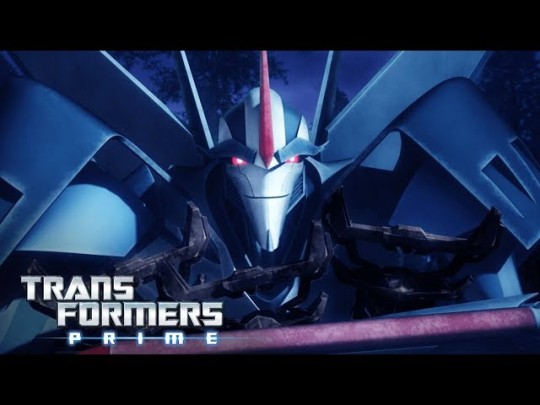
content warning: discussions of physical/psychological abuse
I’m going to try to write a rant but we’ll see how good I am at stringing my words together.
I love Transformers Prime with my whole heart, particularly Starscream, and despite and because of this, I don’t like the way his character plays out in season three.
After Starscream rejoins the decepticons at the end of season two, the abuse he receives from Megatron gets way worse. Megatron physically beat Starscream quite often in season one, and as season three progresses, this treatment is on full display and gets so much worse. And these abuse scenes are genuinely horrible and upsetting. Megatron physically dominates Starscream, who is much smaller and thinner, and the show spends a lot of time emphasizing his fear and screams as Megatron beats him.
Alongside Starscream’s abuse getting worse, he also gets significant Stockholm syndrome in season three, which makes the whole situation one thousand times ickier. While in season one Starscream tried to usurp and fight back against Megatron, now he looks up to the person who is actively and regularly beating him half to death.
But there’s nothing wrong with depicting a toxic character dynamic, it’s how the narrative frames it that matters.
Starscream gets treated worse by Megatron while thinking better of him as the show goes on. And the only people we get to see this ugly situation through the eyes of are Starscream and Megatron, who both think this is fine in one way or another.
We never get to see any other character acknowledge the abusive relationship. The autobots are totally oblivious or totally uncaring that it’s happening, and you can bet the other Decepticons aren’t going to do anything about it. Even after Megatron leaves behind his goal of oppression, he shows no regret of how he’d treated Starscream, the person who he had arguably made suffer the most. He just shouts at him and makes him flinch one last time then abandons him. He continues to mistreat him then leaves him behind. Leaves behind the person who he had physically and psychologically destroyed for thousands if not millions of years. Although I don’t expect Megatron to show sympathy for Starscream, since his ‘redemption’ was just him retiring and leaving everyone else to clean up the mess he made. (I have good and bad feelings on Megatron’s ending, but I don’t want to get too sidetracked)
What matters is, without Megatron acknowledging the horribleness of the situation, and without the autobots being aware of it, the only person who can acknowledge how toxic the situation was is Starscream.
But he doesn’t get this chance. His arc ends when the Predacons beat him up for revenge.
Starscream is an abuse victim, and he is never given a chance to heal. No character, himself included, ever fully acknowledges how problematic the situation is. He is never given a chance to be powerful. Over and over again he is forced to be weak and without agency. From the start of season three to the end of the movie, his character is a slow trickle into suffering more and more, being beaten down again and again until he doesn’t get back up.
When watching the show, I was fine with the amount of frightening abuse they were depicting on screen because I thought they would have some amount of healing from it. But it just gets worse and worse until the show ends and that’s it. It just feels like abuse for the sake of abuse at this point.
But the thing is, I’m not even opposed to Starscream having a bad ending. Let me explain.
I think it makes sense after him being conniving and evil and power hungry and cruel for his actions to catch up for him, and for him to be humbled in one way or another.
The thing is, they depicted Starscream’s fall to shame without ever giving him a moment of power. There’s no climax in season three where he takes control of his life again. There’s no moment where he gets to be more than humiliated and shamed.
Starscream is a victim, and he’s an abuser as well. He treats everyone around him horribly. He is a perpetuator of the cycle of abuse, where, after being abused by Megatron and others, he started to replicate their cruelty in order to have power.
The story needed to recognize him as both an abuser and a victim. It seemed to think these cancel out. That Starscream being beat by the Predacons in the end is the consequence of his abusive actions towards others coming back to haunt him. But just as a middle school bully doesn’t deserve to go home and be bullied by their sibling, an abuser does not deserve to be abused by another person. No one deserves to be abused.
Starscream being abused doesn’t pay for his crimes. And he isn’t just being humbled for treating the predacons badly; he’s being tortured.
As an abuser, Starscream deserved to see the consequences of his actions in some way, but as a victim, Starscream deserved any kind of moment of victory.
All this to say, this isn’t about wether or not Starscream deserved to be beat by the predacons (although I maintain that we should have better mindsets about paying for our crimes than “abusers deserve abuse”). This is about the fact that he deserved to see a shred of honor before his fall as well.
This is about the fact that as an abuse victim, he is given not a shred of dignity or an acknowledgment of his pain. His descent in season three isn’t even a character arc. There’s no growth, no resolution, no rising or falling climax. Like I said before, it’s just him suffering over and over, until the series ends.
Starscream is perhaps a good, although tragic, depiction of an abuser: a character who treats others poorly until it finally catches up to him. But he is a bad and problematic depiction of a victim: someone who never gets to be seen, even by himself.
#save our starscream#they could never make me hate you starscream#If this makes sense I might make a YouTube video out of it#I like screaming into the void#Gahhhh I love transformers prime but like#The abuse plotline genuinely disturbed me#There was no healing#And it would be one thing if this was it but this is how Starscream is treated in nearly every tf universe#prime is just the worst example#transformers starscream#megatron#tfp starscream#Tfp#transformers#maccadam#I have so many thoughts on Starscream actually#I love Starscream so much he’s my favorite and the show did not do him justice#Probably am actually going to make a YouTube video on this bc I have more thoughts I wanna expand upon without posting an essay here haha#abuse tw#themes of abuse#Stay safe
105 notes
·
View notes
Text
We have another entry in one of my favourite genres, "people showing their whole ass trying to claim East Asians Are A Conformist People", and this part absolutely sent me:
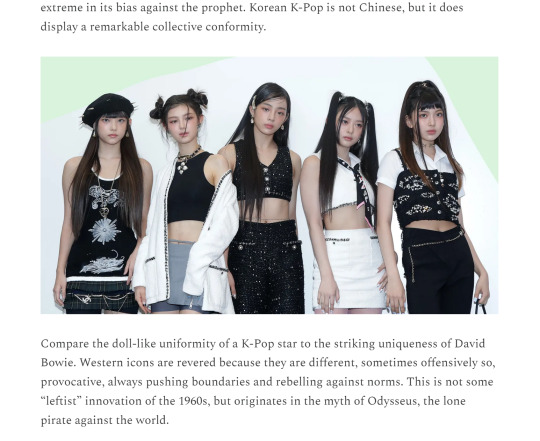
"Compare the doll-like uniformity of a K-Pop star to the striking uniqueness of David Bowie" or don't do that?? Why would you do that very dumb thing?? The "Individualist West" has pop bands; hell, these K-pop groups are incredibly successful in the west. Korea/China/etc have avant-garde artists like David Bowie; they just aren't a controlled corporate product for export so you, dear author, haven't heard of them, because you don't know anything about China or Korea.
As revealed by that last line "the lone outlaw type that originates in Odysseus" no it originates in all storytelling in every society. You are writing an essay about culture in China, there are literally four books you just have to know the name of to even apply for that post and this is one of them:
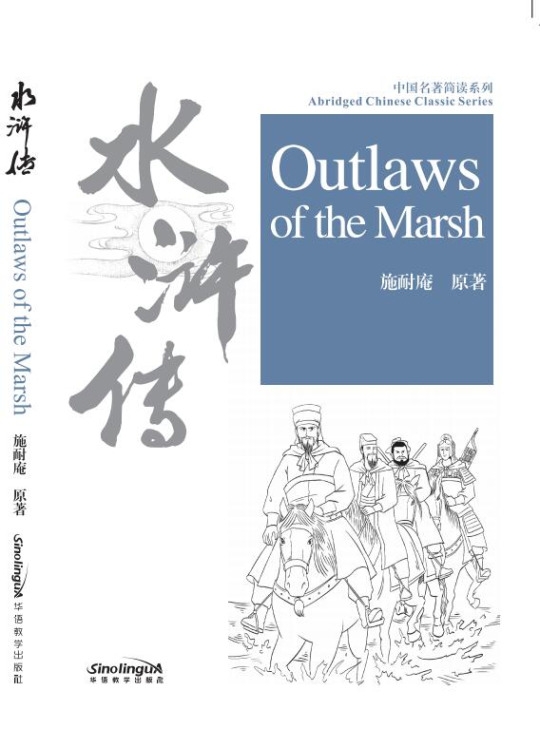
The book even has a Bowie-style hefty dose of homoeroticism! Precious, irreplaceable levels of swinging-and-missing going on here.
And yes this is a lead-in for an essay about how AI will invalidate China's cultural model because people will use it to cheat on homework, because when it rains it pours.
(H/T Richard Hanania for the reblog, who continues to be highest value-add "shit you can find on the internet" follow around for me, variance is a quality all its own)
106 notes
·
View notes
Text
Representation is so important bc im sitting here crying again to foolish from the bright sessions musical episode. I never DID dream I never DID hope I never did have the time!!!! I never dared I never tried to yearn for something that never could be mine!!!!!!!!!!!!!!!!!!!!!!!
#the bright sessions#tbs#sam barnes#girlies whos youths were stole by their debilitating panic disorders rise up#by which i mean just me and fucking samantha barnes IG#DONT BE FOOLISH. (thats what id say) DONT GO FOOLING YOURSELF. YOU CANT BE LIKE EVERYONE ELSE#DONT ASK FOR MORE (THEN WHAT ARE YOU WAITING FOR?)#samantha barnes#im planning on writing an essay in my disability studies class on panic disorder as a disabling condition in media and Samantha Barnes#WILL be mentioned#and Hera and Adaine#bc those are the only 3 examples i know#screaming#cienna talks
87 notes
·
View notes
Text
An example of queercoding in Alhaitham and Kaveh's relationship: Madam Faruzan edition
Due to the rules in place for game development in China, the possibility for queer confirmation within Genshin Impact is denied, which therefore renders the usage of characters alluding to the potential romantic connection between two same-sex characters as impossible. However, the same insinuation can be made by omitting specific language which strictly conveys romantic sentiments, such as ‘couple’. Instead, the idea of secrecy or something unmentionable can be drawn upon as indicators, as this draws parallels to the taboo of homosexuality practiced within certain cultures and media forms, which the real world audience can identify.
For example, Alhaitham and Kaveh as secret housemates. This can be used to convey an idea of ‘taboo’ as Kaveh desires to protect his reputation by concealing his shame of having to live with Alhaitham. In-game, the context here is that Kaveh wants to uphold his reputation of a successful architect, but within Alhaitham’s Story Quest, upon the player’s discovery of Kaveh living with Alhaitham, this context is omitted for some time. This prompts Paimon to question what exactly Alhaitham and Kaveh’s relationship is, with Kaveh denying that the two used to be friends but are not anymore: “I wouldn’t say ‘friends’ exactly”.
This tactic of double entendre can be seen again in A Parade of Providence when Paimon almost reveals Kaveh’s living situation to Faruzan.

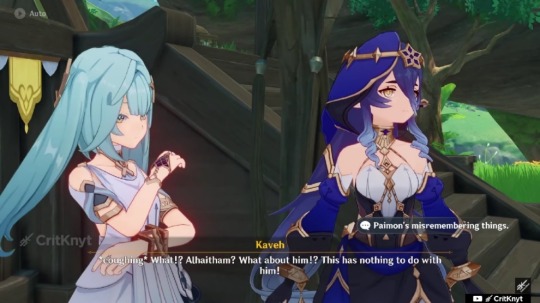
Faruzan’s can be observed to resort to a thinking pose, in comparison with Layla, when Alhaitham is mentioned in relation to Kaveh wanting to buy property, as Paimon almost ‘outs’ the truth, that Kaveh resides with Alhaitham.
She then seemingly dwells upon the subject, as she returns to it after Kaveh requests for a change of topic later in the conversation. Here, Faruzan follows up on whether Kaveh lives alone, which he fails to deny.
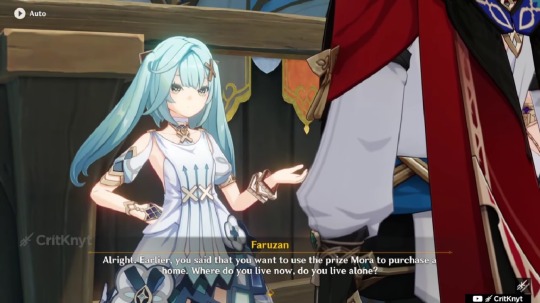
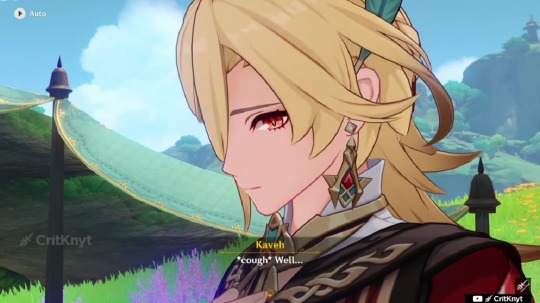
Here, it can be seen that she has already began associating Kaveh and Alhaitham, possibly speculating that the two live together. When Kaveh fails to supply an answer, therefore not denying her theory, she explicitly ties the two together, and asks if the two are “hiding” something.
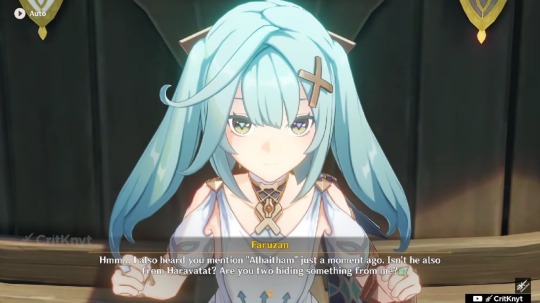
This question evokes a physical reaction from Kaveh, as he denies this question out of fear of being revealed, with Paimon opting to leave in order to cover her role in revealing Kaveh’s predicament.
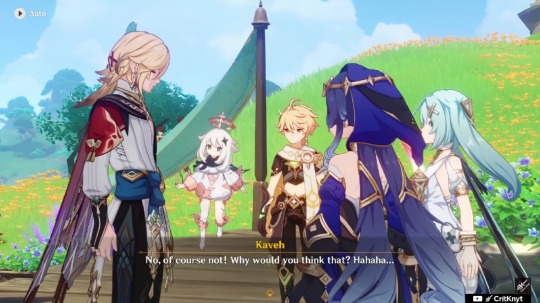

A deliberate potentiality has been created here in regard to what Faruzan has inferred, as her phrasing of “are you two hiding something from me?” is non-specific. Rather than asking: “are you two living together?”, she asks a question which holds multiple connotations. Due to the ambiguity of her meaning, her question can be observed as a non-explicit version of the: “are you two a couple?” question.
On the surface, this question is a reference to their situation as roommates, however, her phrasing is non-specific, and hints to another cause for “hiding” something. For Faruzan, Kaveh’s blatant evasion of the topic and dismissal of Alhaitham’s name, could easily be inferred as “hiding” a romantic connection – which is something that the player, too, can pick up on from her gesture of suspicion, her inquisitive questioning, and her excitement when piecing together the clues. The ambiguity of her question generates multiple meanings as to why she has surmised the two could be “hiding”.
This overt secrecy in Kaveh’s living with Alhaitham, another man, prompts the player to generate associations between this in-game secrecy and real world queer shame. In this, there is an implication of the need for Kaveh to confirm the status of his relationship between him and Alhaitham. Not only does this scene connotate an ‘outing’, in which a queer character has their queerness forcibly revealed to a heteronormative audience, but this creates a sense of secrecy, which, again, can be interpreted by the player as ‘taboo’.
Kaveh does not want to tell anyone of his living situation out of preserving his stellar reputation, however, Faruzan is missing this context. She relates Alhaitham and Kaveh together in the phrasing “you two”, coupling them together in a secret that they “hid[e]”. The player understands this as indicating to their living situation, however, this creates a separate context which Faruzan has interpreted and that, we, as the audience are not privy to, but can interpret based on her allusions to cohabitation between two men being a secret.
Whilst this is not explicitly romantic within Genshin’s world of nameless sexuality, Faruzan’s ambiguous questioning here draws parallels between real world understanding of sexuality and the connotations of queerness which stems from two men living together in secret.
(Update: For more analyses like this, the essay this is taken from is now uploaded! It can be accessed here and here as as a pdf <3)
#faruzan needs to run away from these two im so sorry you dont deserve this#queercoding is alive and real in genshin impact#but we already knew that#the fact that alhaitham and kaveh are roommates but in secret is already extremely telling#and it's stressed that they are ROOMMATES and not landlord/tenant#this is just one example of queercoding from the queercoding section of the essay but i was going insane over it#i really recommend watching this particular part of a parade of providence because the stills of the animations dont do it justice#also why did faruzan react like THAT#that was not a normal reaction to have if you find out two colleagues platonically live together#the writing genshin is crazy#lets all be crazy together <3#haikaveh#kavehtham#kavetham#alhaitham#kaveh#haikaveh meta#genshin meta
219 notes
·
View notes
Text
Hawkeye and Frank are the two most diametrically opposed characters on Mash. They clash politically, ideologically, emotionally, intellectually, and even physically on more than one occasion. There is virtually nothing they agree on. But they do have one significant similarity: both Hawkeye and Frank are notably, pointedly effeminate.
Hawkeye is the central protagonist, so he's written to be likeable, even admirable, especially in the first five seasons of the show when satire dominated rather than character drama. He's the character who makes the correct political points and voices the show's ideology, and male audience members are encouraged to identify with him and aspire to be like him. He's witty, he's smart, he's charismatic, he dodges consequences a lot, he's highly skilled in his work, and he has a strong personality and natural leadership qualities.
Frank is the main antagonist up until the end of season five. He's written for audiences to hate him, mock him, and occasionally be horrified by him. He's dull-witted, incompetent, awkward, easily led and manipulated, and always gets his comeuppance. Few audience members are likely to aspire to be more like Frank Burns.
And yet, while most likeable protagonist/detestable antagonist duos in American popular media would also be differentiated in terms of gender performance as a matter of course - the effeminate villain being a standard stock character, always set against a ruggedly masculine hero - Mash takes a different approach.
From his core personality as a sniveling, weak-willed follower, to the way other characters, including Hawkeye, routinely make fun of him by comparing him to a woman or insinuating that he's gay, Frank Burns certainly fits the part of weak, emasculated villain. What's more interesting, and much less commonly seen in Hollywood media, is that Hawkeye is portrayed as just as unmanly, and just as, if not more prone to having it pointed out in the show.
Often Hawkeye's jokes at Frank's expense include the implication that Hawkeye is attracted to him himself, and not necessarily as "the man." He jokes, "Guess it's a marriage, Frank. I know I can do better, but at my age, can I wait?" in Hawkeye, Get Your Gun; he switches from calling Frank one of his vampire brides to taking the feminine part in post-coital pillow talk after siphoning his blood in Germ Warfare; he kisses or tells Frank to kiss him in Major Fred C. Dobbs, For the Good of the Outfit, and Bulletin Board, etc.
Other times, the jokes Hawkeye makes about himself are virtually identical to the jokes made at Frank's expense - their respective attractions to Margaret as a potentially dominant sexual partner, eg, with both Frank and Hawkeye portrayed as eagerly submissive. For instance, in 5 O'Clock Charlie Hawkeye jokes about tying Frank to Margaret's tent, then dismisses the thought with, "He'd probably love it. I know I would." And Hawkeye/Trapper and Frank/Margaret are sometimes paralleled as dual couples, Hawkeye and Frank usually being framed as the more feminine partner in each.
And of course, unconnected to Frank, there are many, many more examples of Hawkeye's effeminacy, both in jokes and in personality traits.
Hawkeye is a self-professed coward who is loud and proud about how terrified he is to be stuck in a war zone. He's emotionally open and highly empathetic, always willing to listen to others' problems and discuss (or scream about) his own. He abhors institutional violence and faces every enemy combatant with his hands firmly in the air. When authority is thrust upon him he strives to relinquish it, and uses it as little as possible.
More shallowly, he has little interest in sports and exercise, derides masculine hobby magazines like Field and Stream and Popular Mechanics, is incapable of performing mechanical tasks to the exasperation of others at least four times (Comrades in Arms which explicitly frames this emasculating, In Love and War, Patent 4077, and Hey, Look Me Over), mocks traditional masculinity in many ways, and enjoys musical theatre and Hollywood gossip. And he makes and takes literally hundreds of jokes about being unmanly and having sex with men himself, many more than he makes at Frank's expense.
But while the jokes are at Frank's expense and meant to belittle him, they're rarely made at Hawkeye's expense, especially in the first five seasons. Hawkeye doesn't make the jokes out of self-deprecation, he makes them out of pride and a desire to differentiate himself from the army men he's surrounded by. He's almost always in on the jokes others make about him, rather than offended - Potter telling him to file a paternity suit against his rival in Hepatitis makes him laugh delightedly, and Trapper's remarks on his effeminacy, such as Miz Hawkeye in Hot Lips and Empty Arms, are sometimes lightly teasing but always a regular aspect of their dynamic that Hawkeye enjoys playing up. Frank doesn't make any jokes directly mocking Hawkeye's masculinity that I can recall, beyond vague "pervert" and "degenerate" remarks, which, while often historically homophobic, in the show's context tend to be treated as a reference to his heterosexual endeavours.
Frank's effeminacy is a point of mockery and derision, but Hawkeye's is a point of pride, and not intended to make him any less likeable to an audience. Antagonists don't get to score points off of Hawkeye by mocking his feminine traits, but Hawkeye makes fun of Frank regularly by mocking his feminine traits.
This difference in framing can partially be explained by the nature of their respective gender performances.
While Hawkeye and Frank are both effeminate, they're effeminate in many opposite ways. Frank is weak-willed while Hawkeye is strong-willed. Frank is unappealing to most women, while Hawkeye is something of a lady's man. Frank cannot face his fears to rise to a challenge, but Hawkeye can. But on the flipside, Frank refuses to admit to fear while Hawkeye openly proclaims it. Frank strives to attain authority while Hawkeye refuses it or takes it on only begrudgingly. Frank is obsessed with guns to a freudian extent while one of Hawkeye's most famous monologues of the show is a speech about refusing to carry one. Frank worships the concept of traditional masculinity even while he can't perform it himself, while Hawkeye mocks the concept and would refuse to perform it even if he could.
The Sniper is an excellent case study of these contrasts. In this episode, Hawkeye is effeminate and at ease with it, while Frank is desperate to prove himself masculine. Frank and Margaret flirt with strong Freudian overtones while Frank shoots a gun while nearby Hawkeye flirts with with a nurse with a line about "tasting" her. Hawkeye connects with the nurse he's wooing by relating to how scared she is and huddling in fear with her, while Margaret demands that Frank prove his masculinity by going out and taking down the sniper himself. Frank carries a gun while trying to approach the sniper, while Hawkeye carries a white flag. Frank tries to make fun of Hawkeye for wanting to surrender, but he can't bring himself to approach the sniper while Hawkeye does.
This contrast of gender performance is a consistent aspect of Hawkeye and Frank's dynamic throughout the show, but The Sniper makes it a central theme so it's a useful example to show how their relationships to masculinity are a deliberate aspect of their dynamic.
And while Hawkeye makes fun of Frank's femininity, it's significant that he also regularly makes fun of Frank's masculinity - his love of guns (eg The Sniper), his sexual affairs (eg the exchange about Frank as a "fantastic performer" in Yankee Doodle Doctor), his numerous attempts to exert authority (eg Welcome to Korea), his desire for socially approved success (eg Hot Lips and Empty Arms), etc.
Both masculine and feminine sides of Frank are comprised of negative character traits, while Hawkeye embodies the best of both - emotional expression and healthy ways of coping by talking about his feelings; bravery but not machismo; intelligence and skill as a doctor rather than an officer; empathy and a willingness to listen; sexual prowess but largely through his love of foreplay rather than his dick game (which, in the context of the early 70s, is a somewhat feminine attribute that distinguishes him from a typical traditionally masculine man); etc.
Hawkeye demonstrates some of the most appealing and healthy qualities of both masculinity and femininity while Frank demonstrates, or strives to demonstrate, the more toxic qualities of both. Through including a few positive masculine traits in the mix, the narrative is able to depict Hawkeye as likeable, admirable, and desirable in his effeminacy while Frank is depicted as loathesome in his. Hawkeye gets one of many, many women in The Sniper by showing vulnerability, while Frank only appeals to Margaret, and Margaret is portrayed as borderline pathological in her sexual attraction to violent masculinity (the scene where Frank excites her with his gun, for example, also includes an electra complex joke, and there's a running rape kink gag in this episode as well).
Another aspect to consider when it comes to differentiating Hawkeye and Frank's respective femininities is hypocrisy. Similar to how Frank and Margaret's affair is mocked because they can't admit to it while Hawkeye and Trapper's affairs are glorified, part of what makes Frank's effeminacy so mock-worthy, while Hawkeye's feminine qualities are a source of pride and rebellion, is that Frank refuses to admit to them.
Frank desperately wants to be the ideal heroic army man and often play-acts the part, poorly. When Hawkeye mocks him by calling him a woman, for example, he's drawing attention to Frank's failure to live up to his own ideals. And when Hawkeye calls himself a woman, he's mocking those same ideals. The message is that Frank is pathetic not so much for failing to be traditionally masculine, but for wanting to be traditionally masculine at all.
Ultimately the ways Hawkeye and Frank perform masculinity and femininity are pointedly in opposition, from which masc and fem traits they embody, to how proudly they embody them. The show itself draws attention to these gendered similarities and differences between Frank and Hawkeye through a constant barrage of jokes, and even whole scenes and episodes. In this way the show portrays Frank as a hypocritical loser who wants to be masculine but fails to embody all but the worst traits, and Hawkeye as a cool, admirable guy who disdains the traditional pillars of masculinity and embraces his own effeminacy.
#mash#marley on mash#mash gen#mash gs#frank mash#hawkeye mash#since you guys liked that trapper gender meta a lot more than i thought you would here have another one#though this is written a little less formally lol#i have more examples of whole scenes that make these comparisons than just the sniper but i'm trying to keep this from being#even longer than it already is#but eg white gold is another good example wrt how they relate to flagg; yankee doodle doctor; army navy game; george; the gun; etc etc#(also it's interesting that when frank leaves hawkeye gets the pathetic loser portrayal more often... though i think that's a coincidence#the shift from early to late mash could be yet another essay on mash and gender lol)#long post
294 notes
·
View notes
Text

One of the pages shippers have been Will Smithing at since it came out.
#ted kord#blue beetle#michael carter#booster gold#boostle#look. look.#even if someone can make a credible argument ted is straight#there is almost no fuckin' way to pretend booster is#that man's so queer#this is just like-- one relatively small example#in the giant pool of 'How Writers Either Accidentally or Intentionally Queer-coded Booster Gold: The Dissertation'#in this essay i will
49 notes
·
View notes
Text
sorry to be a bit of a hater but i do wish youtubers weren't so scared of making their videos just like, "reviews", whys everything gotta be a "video essay" all the time. every day my recommendations are filled with 40 minute videos titled "_____: An Underrated Masterpiece" where the first like five minutes are reading the wikipedia definition of "masterpiece" in a somber voice with dramatic themed text on screen. please just tell me how good or bad you think something is and use the rest of the runtime to explain why. you dont need to put on all these airs
#i know the ahem. channel. of some awe....... that whole situation kind of scared people off from using the word review#but like we live in the future now. you can make a review. i believe in you#AND LIKE i like a good video essay!! but im picky. because i read academic shit for fun#when i see a capital E essay im expecting theses. im expecting sub headers. im expecting multiple examples AND footnotes with asides#(and i know this is a controversial topic but i do expect them to be long. because if you read aloud a 4 page journal article its gonna)#(take a bit of time LOL maybe i just read too much academia shit. but i dunno man. theres not a lot you can say about like a big huge)#(topic with multiple angles if you only have like 10 minutes. maybe i just talk too slow. i need to breath <3 )#theres other formats too. surveys. retrospectives. informative essays. persuasive essays. etc#and like i also read lots of reviews not just of like movies and books but of like gallery exhibitions and shit!! they can be extremely#interesting a lot of work and some really beautiful writing!! nothing wrong with a review!!! theyre important#but i do get annoyed with like. the odd air of pretention i see in a lot of video essays. especially cause its usually not backed up by#the content. i dont care for those airs in academia either. nor do i like it in documentaries#just talk naturally. you'll find your voice. there might be pretention in it in the end but it'll be yours#if im making sense. i hear a lot of people talking in a pretention that is not their own. something they put on because thats what they#think they should do. you need to find your own pretention. be pretentious in a way that feels natural to youuuuuu#hell im being pretentious. about this LOL but like its my own. it is a pretentiousness ive built over the past half decade#play around. write a blog. i dunno. find your voice dear youtubers. find your voice
139 notes
·
View notes
Text
Heeeeeeeeeey, can we talk about how both times Green (m) risked his life to rescue his grandfather from Team Rocket, Professor Oak never asked him if he was okay, or checked if he was hurt, or did... literally anything to help his grandson?
In RGB Arc, Green almost collapsed after his fight with Koga. He was clearly hurt and overall not okay - to the point where Red is very visibly concerned about him.

And when he finds and rescues Oak, the first thing he does is ask if his grandfather is hurt; he immediately checks if his grandfather is okay. But Oak never asks him back, instead he sends Green straight on to the next dangerous task (rescuing the people of Pallet Town).


Which, alright, fine. People were in danger and they needed to act fast. But even once the danger is over, we never see Oak show any concern for Green's wellbeing.

Then in FRLG Arc, the same thing happens. Green risks his life to save his grandfather, and when he finds him the first thing he does is check if he's okay. Oak doesn't return the favour and instead tells Green to go rescue more people (this time, Blue (f)'s parents).

Later, after Mewtwo destroys the Trainer Tower, Green literally collapses right in front of his grandfather. And Oak does absolutely nothing to try and help him.

Green clearly isn't okay here - just like Red was in RGB, Blue is very visibly concerned over Green's wellbeing. Meanwhile, Oak just stands there. Doesn't ask if Green's okay, doesn't reach for him to try and catch him or check for injuries. He just stands there (partially out of frame) and watches.
And keep in mind, Team Rocket and the Deoxys clones have left at this point. The immediate danger has passed. There is literally no reason why Oak couldn't or shouldn't make Green his top priority in that moment.
Now compare that to Giovanni's behaviour; despite having only just been reunited with Silver, who is basically a stranger to him, he is 100% willing and prepared to sacrifice his life if it means even the slightest chance of saving his son's life. In the middle of a fire, with airship wreckage raining down around them, Giovanni does literally everything within his power to make sure Silver remains safe and unhurt.



Giovanni, the main Big Bad Villain of the RGB and FRLG Arcs, shows more love and care for his son in the span of a few minutes than Professor Oak, who is treated as a hero by Kanto, has shown his grandson in at least 10 years.
#it's turtle time#pokemon#pokespe#every time i think about the frlg scene i become so fucking mad#i need other people to be mad about it too. bc it fucking sucks#green works so hard for his grandfather and gets jack shit in return istg#i could write an essay on how emotionally unbalanced their relationship is. with green overinvesting and oak underinvesting#like for example. the agatha in the power plant incident#why the fuck did oak encourage his 11 yr old grandson to enter an *abandoned powerplant* which would be really dangerous already#but on top of that. to take an even younger child in with him. wtf#gonna make a post about that because seriously that's fucked up#anyways#pokemon special#pokemon adventures#green oak#dexholder green#trainer green#blue oak#dexholder blue#trainer blue#professor oak
61 notes
·
View notes